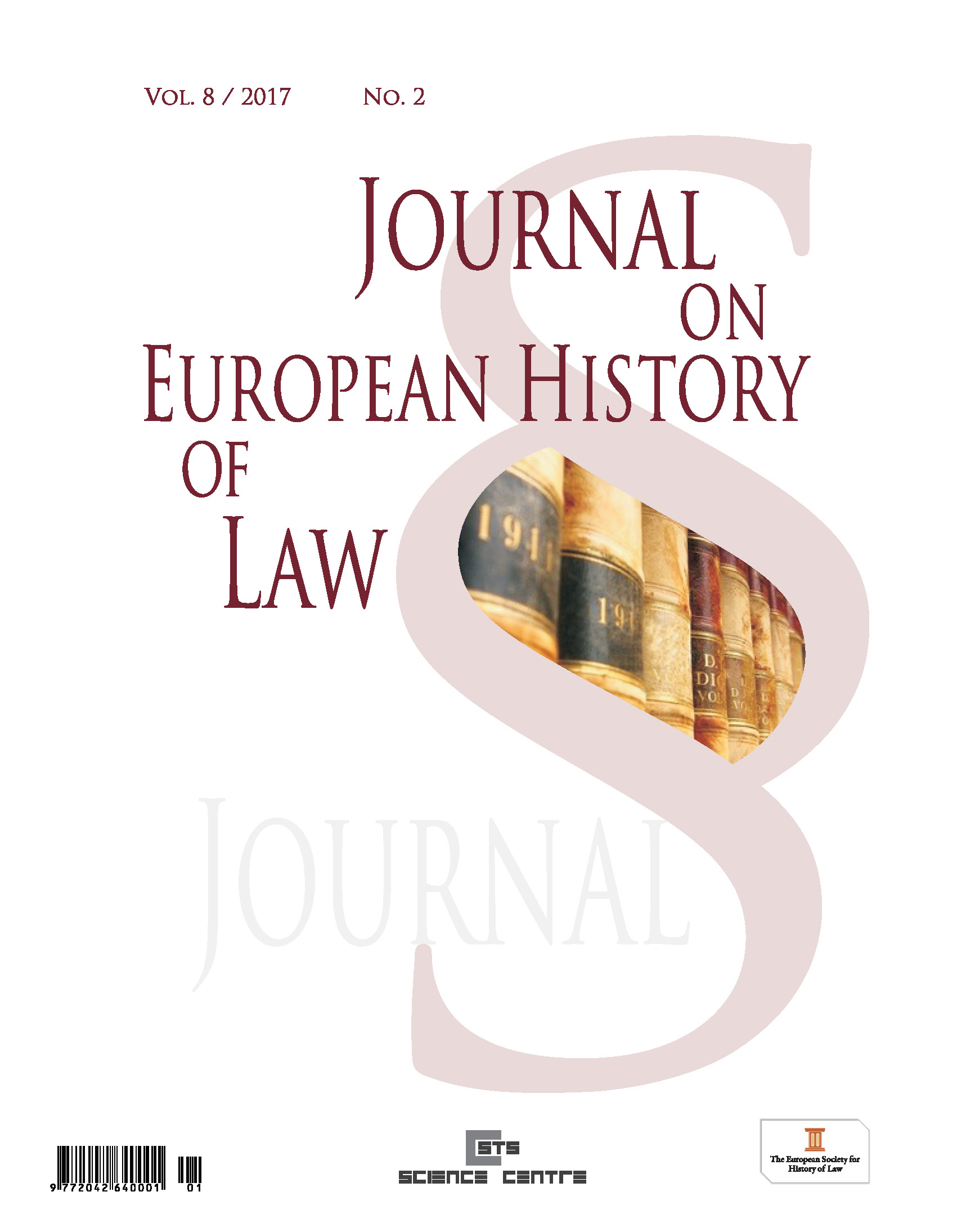Is there a Polish Legal Tradition? on the Margins of Considerations Regarding the 1933 Code of Obligations
Is there a Polish Legal Tradition? on the Margins of Considerations Regarding the 1933 Code of Obligations
Author(s): Maria LewandowiczSubject(s): History, Law, Constitution, Jurisprudence, History of Law
Published by: STS Science Centre Ltd
Keywords: Legal tradition; Polish Code of Obligations; codification;
Summary/Abstract: Acknowledging the stance of Savigny on the organic connection between law and nation as correct, I will attempt to resolve within this paper if the term of 'legal tradition' may also be applied to the Polish nation. The 1933 Code of Obligations, which was drafted in a country recently reborn following over a century of political non-existence, is a particularly fitting object for such an analysis. I will try to show that national identity in the area of law may be shaped not only by the use of 'indigenous' norms in the legislative practice, but also by the consolidated, centuries-long tradition of implementation and adjustment of foreign laws to the current social needs of a given society. I will expound that the existence of a national legal tradition does not necessarily require the simultaneous existence of a nation state. For this purpose, I will perform a comparative analysis of Polish law throughout time, starting from the 16th century, when Poland was a stronghold of power on the geopolitical map of Europe, all the way to the Second Republic of Poland and the 1933 Code of Obligations. Only a broad research perspective will make it possible to observe the recurring mechanism of drafting and application of law, thus enabling the identification of legal tradition.The Polish legal tradition is based on both the method of adjusting law and on normative contents. The method consists of implementing foreign principles, that is of adopting a specific - in this case: foreign, normative content, which remains foreign only until it has been accepted by the society as a collection of laws of national character. Thus was the situation in Poland both before the partitions and in the interwar period. Of course, the undertakings of the Codification Commission that drafted the 1933 Code of Obligations may be assumed to have been unconscious, yet it does not deprive these undertakings of their traditional quality. This is due to the fact that the stance of the legislator and of the society toward the law is shaped by the spirit of the nation, in which a more or less conscious transmission of values and principles takes place, and these values and principles are capable of persevering also through periods of social disintegration, as was the case of Poland under partitions.
Journal: Journal on European History of Law
- Issue Year: 8/2017
- Issue No: 2
- Page Range: 72-76
- Page Count: 5
- Language: English
- Content File-PDF

